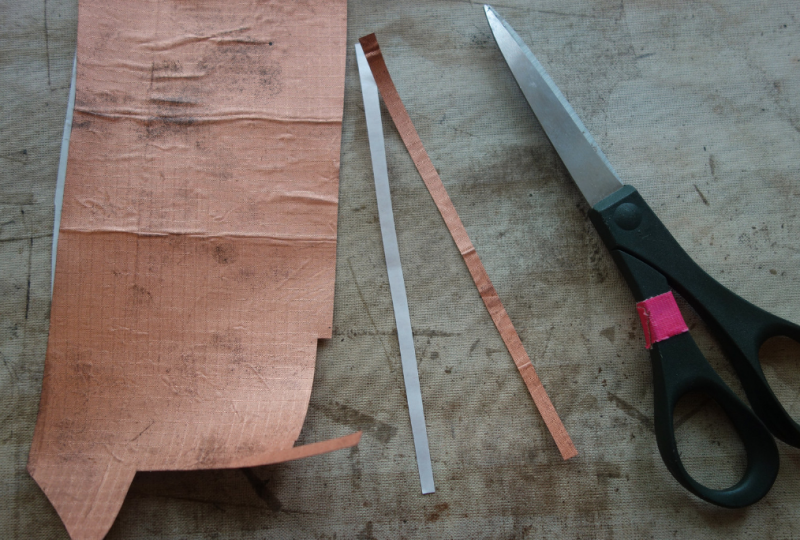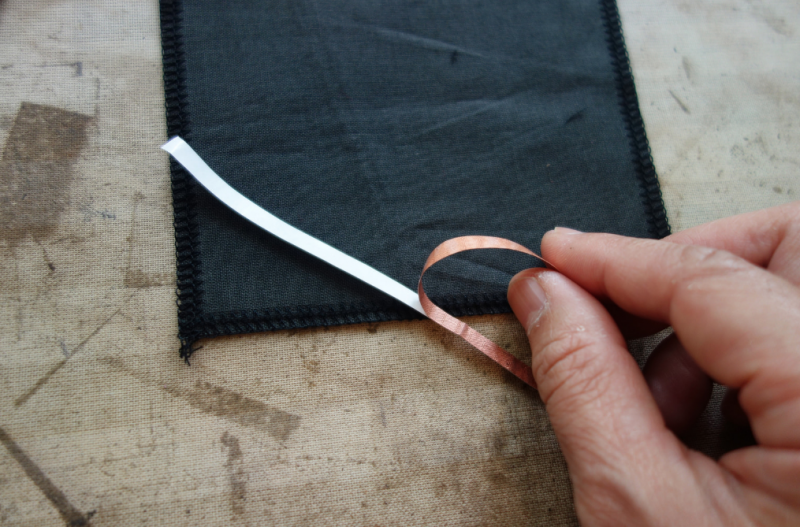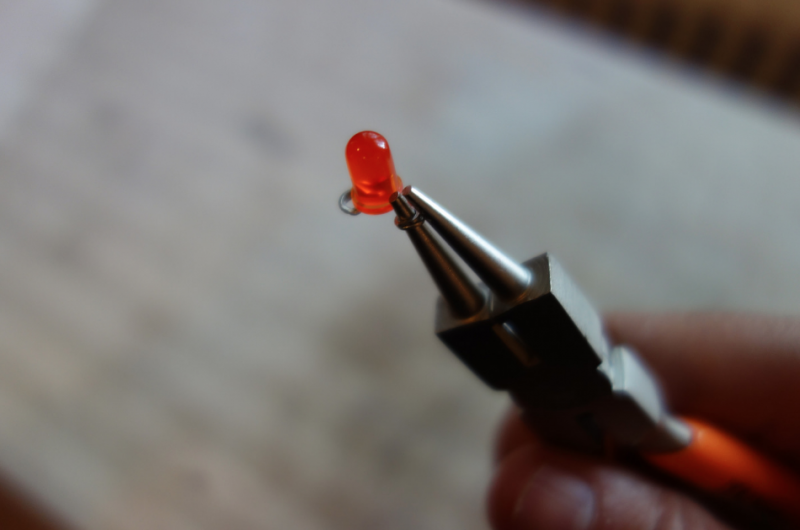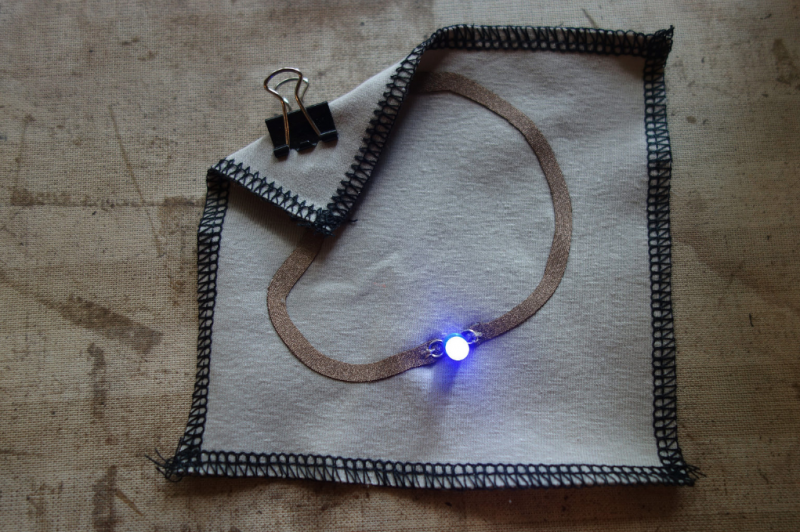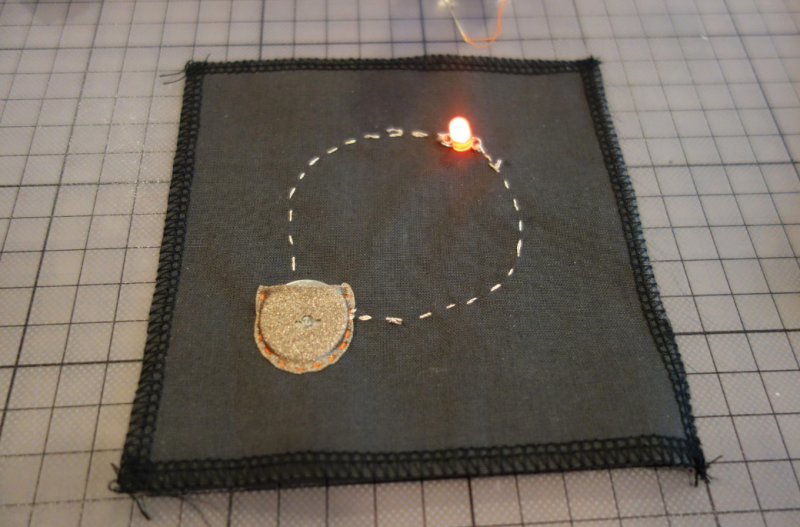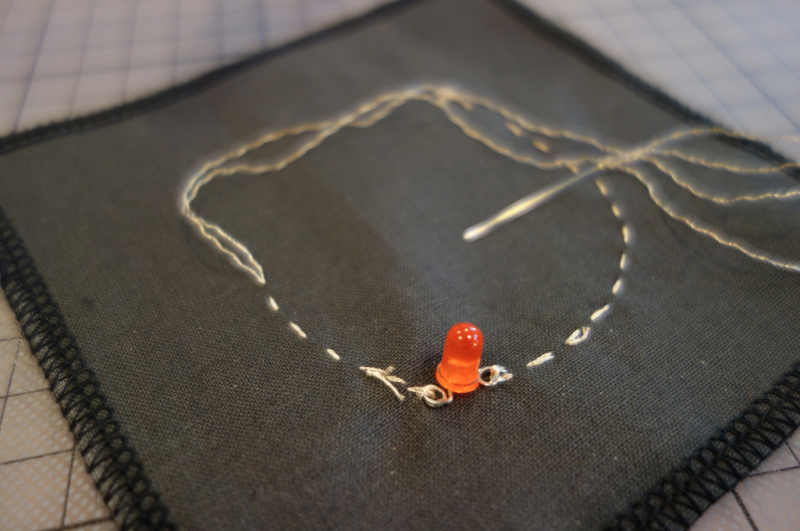Difference between revisions of "Wearables: First Steps"
| Line 21: | Line 21: | ||
=Hello wolrd: Soft circuit= | =Hello wolrd: Soft circuit= | ||
| + | For the hello world we will use an led as an output. | ||
| + | A light-emitting diode (LED) is a two-lead semiconductor light source. When a suitable voltage is applied to the leads, electrons are able to recombine with electron holes within the device, releasing energy in the form of photons. (https://en.wikipedia.org/wiki/Light-emitting_diode) | ||
| + | There are two things we have to take care when using LED. | ||
| + | – LED has polarity. Make sure to connect LED in correct direction. | ||
| + | You can tell the direction as the positive side usually has a longer leg, or a smaller triangle lead in the epoxy lens. Or a dent in the epoxy on the negative side. | ||
| + | [[File:Ledled.png | 900 px]] | ||
==simple== | ==simple== | ||
Lets s start my making the hello world of soft and any kind of circuitry:) | Lets s start my making the hello world of soft and any kind of circuitry:) | ||
Revision as of 08:15, 24 September 2018
Intro
This is an introduction to working with soft electronics.Combining and entwining circuits and fabrics. We will go trough the fundamental knowledge of electricity and how we can use it in various ways to make soft interfaces.
Materials
conductive
resistive
non-conductive
Tools
sewing machine
multimeter
pliers
scissors
lasercutter
vinyl cutter
breadboard
microcontroller
arduino
flora
Hello wolrd: Soft circuit
For the hello world we will use an led as an output.
A light-emitting diode (LED) is a two-lead semiconductor light source. When a suitable voltage is applied to the leads, electrons are able to recombine with electron holes within the device, releasing energy in the form of photons. (https://en.wikipedia.org/wiki/Light-emitting_diode)
There are two things we have to take care when using LED.
– LED has polarity. Make sure to connect LED in correct direction.
You can tell the direction as the positive side usually has a longer leg, or a smaller triangle lead in the epoxy lens. Or a dent in the epoxy on the negative side.
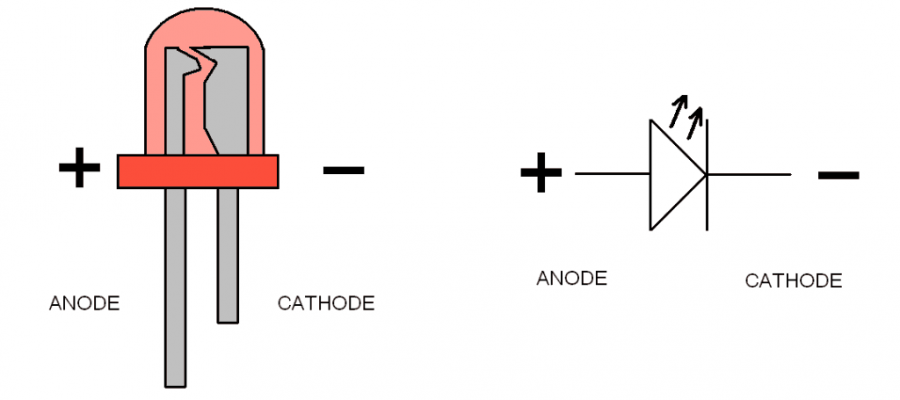
simple
Lets s start my making the hello world of soft and any kind of circuitry:)
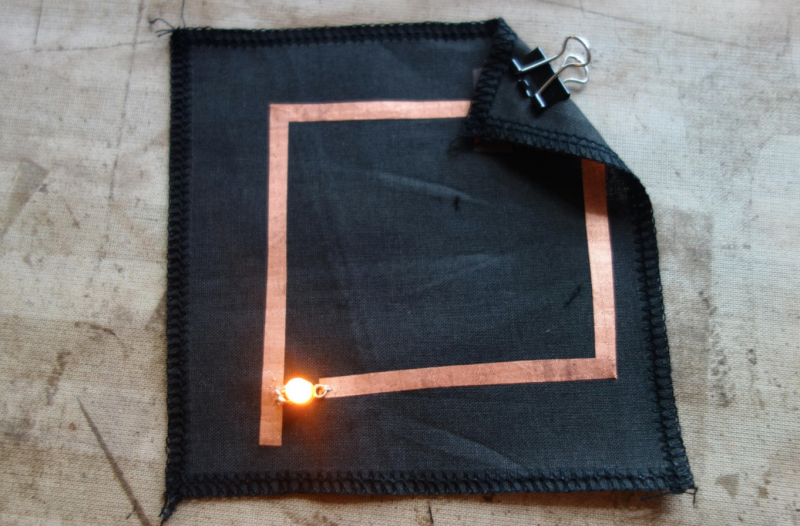
Cut conductive fabric that has fusible interfacing on one side. peel off the backing paper and place it on base fabric. Make sure the iron is set to synthetic. Most conductive fabric is delicate. And you do also rist the glue from the interfacing glue to appear of the front.
You can cut each side or fold to make corners. In both cases we need to check if all connections are right. We will use the continuity setting.
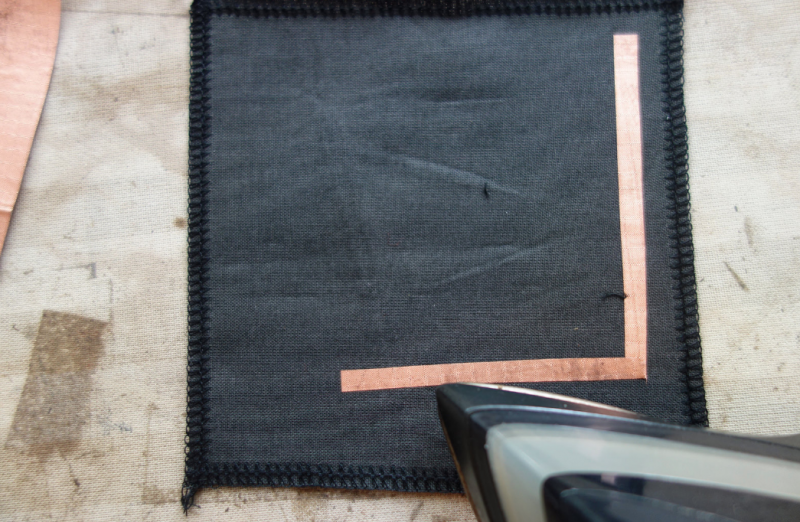
We make a rectangular shape and leave both sides open. On one side we will clamp the battery, and on the other: sew the led.
Use pliers ( best rounf ones) to bend the led legs into hooks. That way it will be easy to sew.
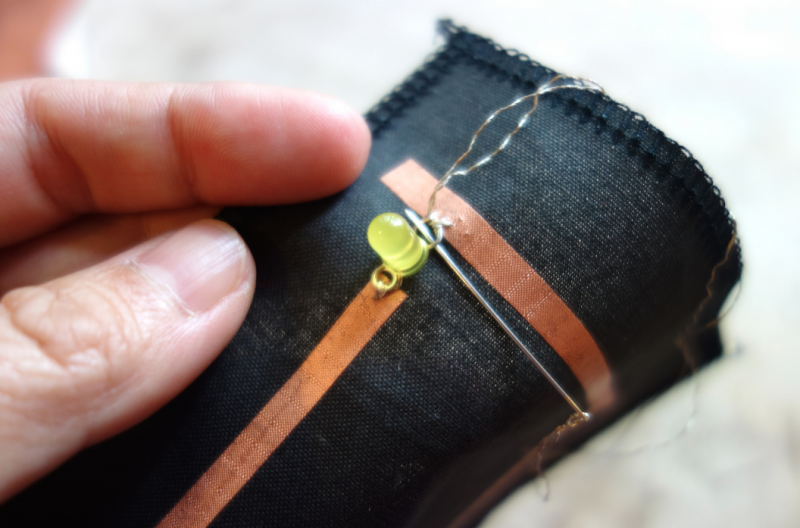
Then we will use a clip to hold the battery in place.

Many options are possible of course. Both in materials and design. But we have to get started,
You can also use conductive thread to make the circuit.
